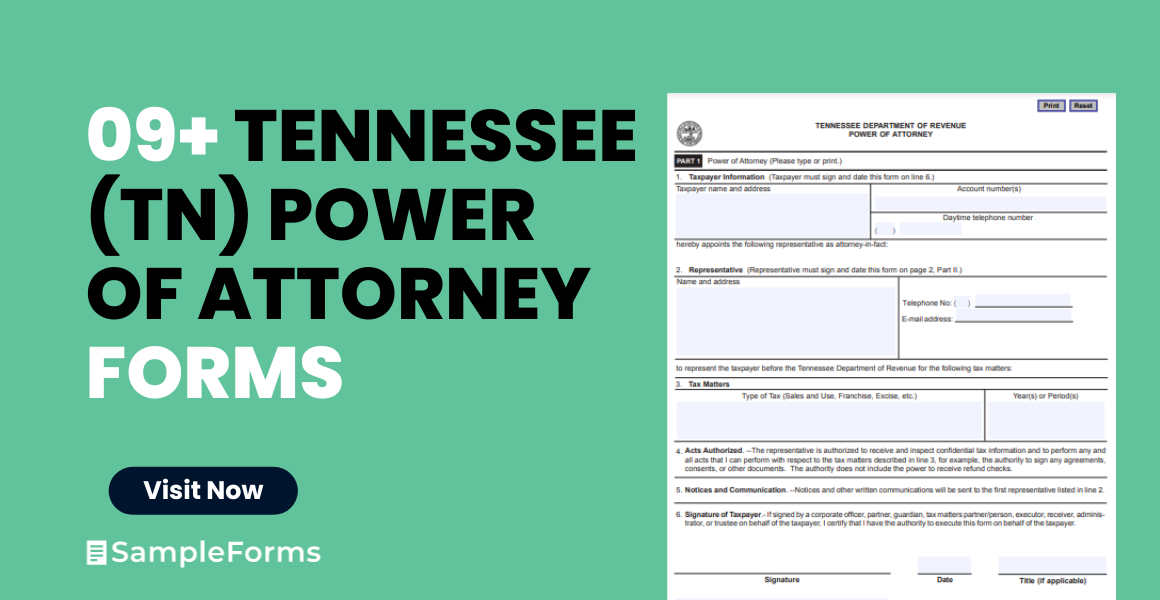Embark on a journey to legal empowerment with our Tennessee Power of Attorney (POA) guide. This comprehensive resource provides essential insights into creating and utilizing a POA in Tennessee. Learn how to effectively draft, execute, and apply these crucial legal documents with our expert tips. Whether managing financial affairs, healthcare decisions, or legal matters, our guide ensures you navigate the process with confidence and clarity. Stay informed and secure with our tailored advice for Tennessee residents.
What is the Tennessee Power of Attorney Form?
The Tennessee Power of Attorney Form is a legal document that allows an individual, known as the principal, to designate another person, called the agent or attorney-in-fact, to make decisions and act on their behalf. This form is particularly significant in Tennessee, as it adheres to the state’s specific laws and regulations regarding such appointments.
What is the Best Sample Tennessee Power of Attorney Form?
The best sample Tennessee Power of Attorney (POA) form is one that is comprehensive, legally compliant, and tailored to the specific needs of the individual. It should clearly outline the powers granted to the agent, be properly executed, and adhere to Tennessee state laws. Here is a sample format:
Tennessee Power of Attorney Form
Principal’s Information
- Full Name: [____________________]
- Address: [____________________]
- City: [____________________]
- State: Tennessee
- Zip Code: [____________________]
- Phone Number: [____________________]
Agent’s Information
- Full Name: [____________________]
- Address: [____________________]
- City: [____________________]
- State: [____________________]
- Zip Code: [____________________]
- Phone Number: [____________________]
Alternate Agent (Optional)
- Full Name: [____________________]
- Address: [____________________]
- City: [____________________]
- State: [____________________]
- Zip Code: [____________________]
- Phone Number: [____________________]
Powers Granted
- Financial Decisions: [ ] Yes [ ] No
- Real Estate Transactions: [ ] Yes [ ] No
- Personal Property Transactions: [ ] Yes [ ] No
- Business Operations: [ ] Yes [ ] No
- Insurance and Annuity Transactions: [ ] Yes [ ] No
- Estate, Trust, and Beneficiary Transactions: [ ] Yes [ ] No
- Claims and Litigation: [ ] Yes [ ] No
- Personal and Family Maintenance: [ ] Yes [ ] No
- Government Benefits: [ ] Yes [ ] No
- Retirement Plan Transactions: [ ] Yes [ ] No
- Tax Matters: [ ] Yes [ ] No
Special Instructions
- [____________________________________________________]
- [____________________________________________________]
Effective Date and Duration
- Effective Date: [____________________]
- Duration: [ ] Indefinite [ ] Expires on [____________________]
Signatures
- Principal’s Signature: [] Date: []
- Agent’s Signature: [] Date: []
- Alternate Agent’s Signature (if applicable): [] Date: []
Notarization (if required)
This document was acknowledged before me on [____________________] by [Principal’s Full Name] and [Agent’s Full Name].
- Notary Public’s Signature: [____________________]
- My Commission Expires: [____________________]
This form should be completed in accordance with Tennessee laws and it is recommended to consult with a legal professional to ensure its validity and compliance with current state regulations.
1. Tennessee Vehicle Power of Attorney Form
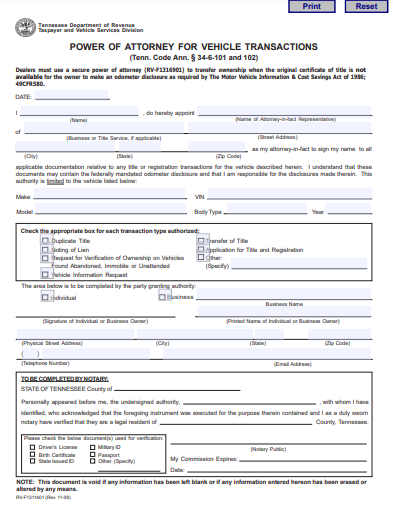
2. Tennessee Sample Power of Attorney Form
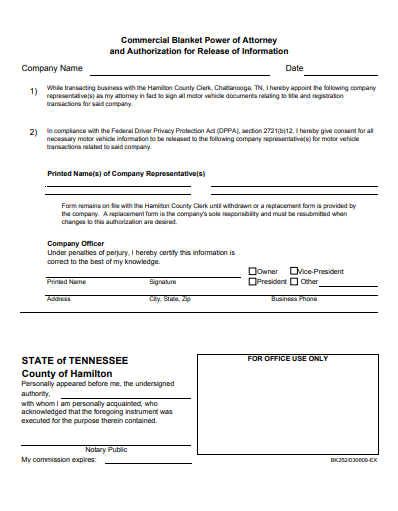
3. Tennessee Power of Attorney Form
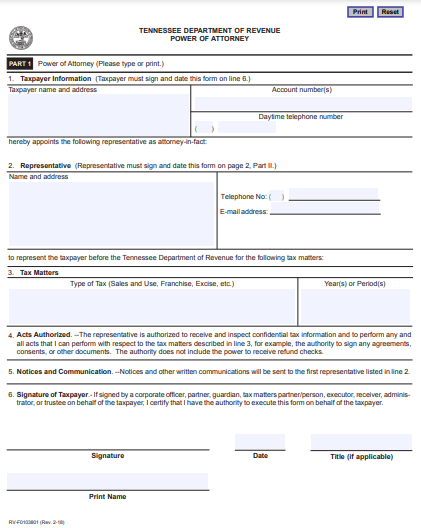
4. Tennessee Minor Child Power of Attorney Form
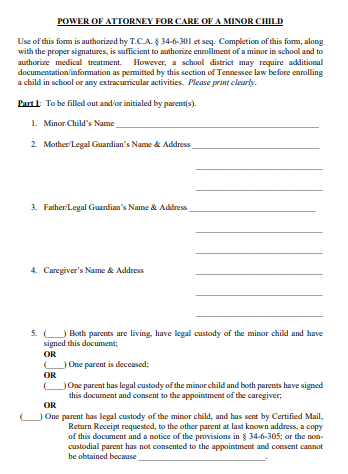
5. Tennessee Medical Power of Attorney Form
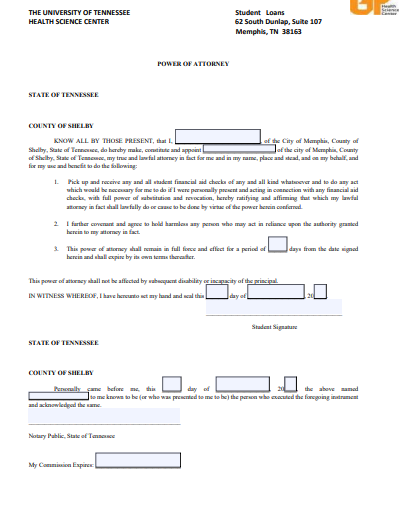
6. Tennessee Limited Power of Attorney Form
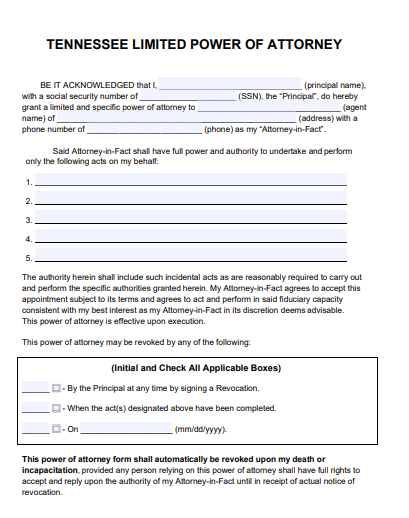
7. Tennessee General Power of Attorney Form
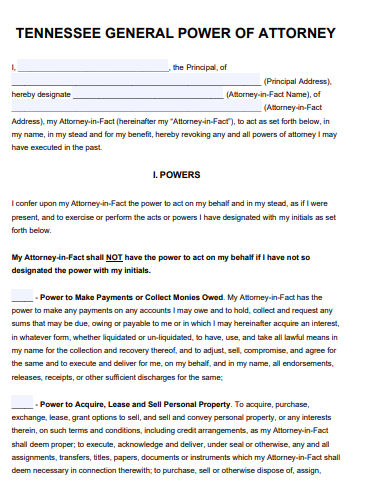
8. Tennessee Durable Power of Attorney Form
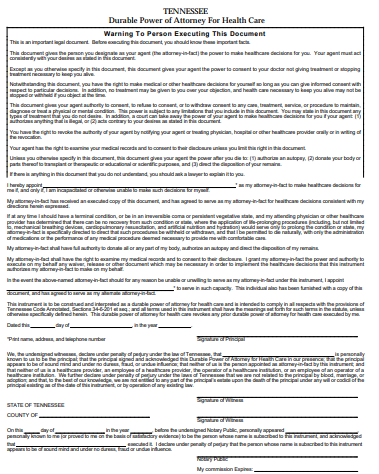
9. Tennessee Durable Financial Power of Attorney Form
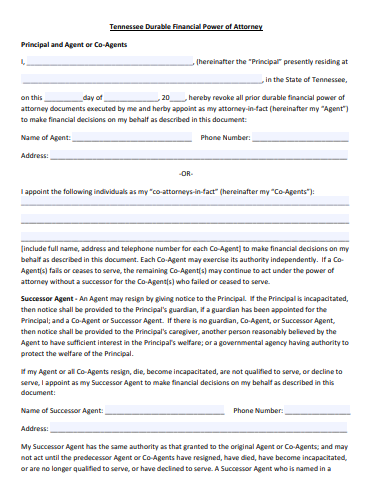
10. Tennessee Blank Power of Attorney Form
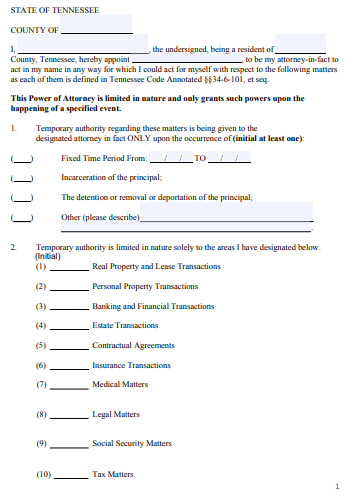
Related Posts
-
10+ Free Nevada (NV) Power of Attorney Form Download – How to Create Guide, Tips
-
10+ Free Nebraska (NE) Power of Attorney Form Download – How to Create Guide, Tips
-
10+ Free Montana (MT) Power of Attorney Form Download – How to Create Guide, Tips
-
10+ Free Missouri (MO) Power of Attorney Form Download – How to Create Guide, Tips
-
10+ Free Minnesota (MN) Power of Attorney Form Download – How to Create Guide, Tips
-
10+ Free Mississippi (MS) Power of Attorney Form Download – How to Create Guide, Tips
-
10+ Free Massachusetts (MA) Power of Attorney Form Download – How to Create Guide, Tips
-
10+ Free Maryland (MD) Power of Attorney Form Download – How to Create Guide, Tips
-
10+ Free Maine (ME) Power of Attorney Form Download – How to Create Guide, Tips
-
10+ Free Louisiana (LA) Power of Attorney Form Download – How to Create Guide, Tips
-
10+ Free Kentucky (KY) Power of Attorney Form Download – How to Create Guide, Tips
-
10+ Free Kansas (KS) Power of Attorney Form Download – How to Create Guide, Tips
-
10+ Free Iowa (IA) Power of Attorney Form Download – How to Create Guide, Tips
-
10+ Free Indiana (IN) Power of Attorney Form Download – How to Create Guide, Tips
-
10+ Free Illinois (IL) Power of Attorney Form Download – How to Create Guide, Tips
